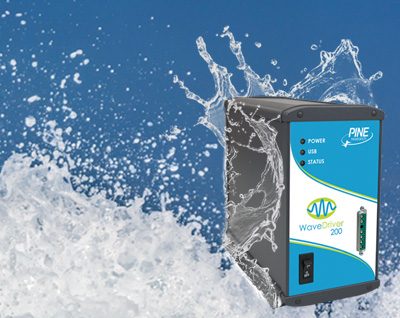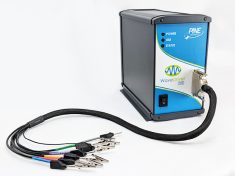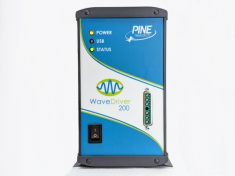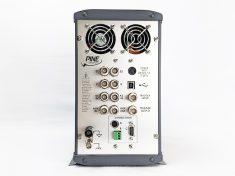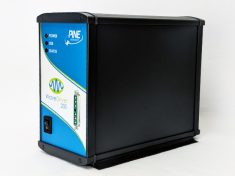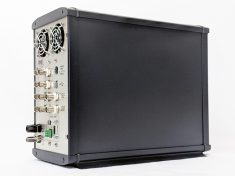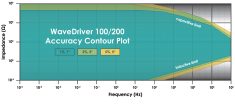| # | Description | Price in USD | |
|---|---|---|---|
| Bipotentiostat Bundle | |||
| [WD200-BASIC] |
WaveDriver 200 EIS Bipotentiostat Basic Bundle |
||
| Power Cords |
this bundle includes a power cord |
||
| List of All Items Included in Bundle | |||
| AFP3 |
WaveDriver 200 EIS Bipotentiostat/Galvanostat |
||
| Software | |||
| ACP3E01 |
WaveDriver Bipotentiostat Cell Cable |
||
| Compatible Cables (sold separately) | |||
| AKCABLE7-03 |
WaveVortex Rotation Rate Control Cable this cable is usually purchased as part of a rotator bundle |
||
| AKCABLE4 |
MSR Rotation Rate Control Cable this cable is usually purchased as part of a rotator bundle |
||
| RRAVCB-T |
WaveDriver Spectroelectrochemistry Integration Cable this cable is usually purchased as part of a spectroelectrochemistry bundle |
||
| ACP2E08 |
WaveDriver Mini-USB Style Cell Cable typically used to connect a WaveDriver potentiostat to a Compact Voltammetry Cell |
||
| ACP2E09 |
WaveDriver Mini-USB Style Cell Cable with Reference Pin Connector typically used to connect a WaveDriver potentiostat to a Honeycomb Spectroelectrochemistry Cell |
||
This WaveDriver® series bipotentiostat/galvanostat is a cost-effective and versatile electrochemical workstation. Under the control of our powerful AfterMath® software package, the WaveDriver 200 is capable of performing Electrochemical Impedance Spectroscopy (EIS) along with a wide range of DC electroanalytical techniques.
Get started immediately with a new instrument today! Key features of the WaveDriver 200 bipotentiostat/galvanostat are listed below:
- Integrated Bipotentiostat: One or two working electrodes with common reference and counter electrodes, simple cable connections, no special adapters required
- Applied/Measured Current Ranges: ±100 nA to ±1 A
- Applied/Measured Potential Ranges: ±2.5 V, ±10 V, ±15 V
- EIS Frequency Range: 10 μHz - 1 MHz
- DC Techniques: All popular potentiostatic and galvanostatic sweep and step methods are included (BE, CV, LSV, CA, DPV, SWV, NPV, ASV, OCP, ZRA, RCP, etc.)
- AC Techniques: Electrochemical Impedance Spectroscopy (EIS), Mott-Schottky, Uncompensated Resistance Measurement
- Special Techniques: Rotating Ring-Disk Electrode, Rotating Disk Electrode, Rotating Cylinder Electrode, and Spectroelectrochemistry (view bundles)
- AfterMath Software: Analysis tools, Data transforms, EIS equivalent circuit fitting, and Kramers-Kronig relationships
The WaveDriver 200 EIS Bipotentiostat/Galvanostat has been engineered to provide you with the essential hardware and software features you need at an affordable price. The most complete electrochemical workstation offered by Pine Research, the WaveDriver 200 combines the benefits of a true integrated bipotentiostat with Electrochemical Impedance Spectroscopy (EIS).
True Integrated Bipotentiostat. From the software to the cell cable design, everything about the WaveDriver 200 bipotentiostat makes working with dual working electrode configurations as straightforward as possible: no messy inter-channel connections are required, and no additional cell cables or adapters are required. The WaveDriver 200 connects to your laptop or PC via a standard USB cable and is controlled by our powerful AfterMath software. The software user interface is designed with two working electrodes in mind, so entering experimental parameters for dual-electrode techniques is quick-and-easy.
Applications. The WaveDriver 200 finds use in academic and industrial research laboratories around the world and across a wide variety of applications. The instrument offers a large range of accessible current ranges (±100 nA up to ±1 A) and potential ranges (±2.5V up to ±15 V) along with advanced filtering and iR compensation. Back panel connections allow rotation rate control when performing voltammetry using a Rotating Disk Electrode (RDE), Rotating Ring-Disk Electrode (RRDE), or Rotating Cylinder Electrode (RCE). Additional input/output and timing connections permit the WaveDriver to control third-party instrumentation in applications such as spectroelectrochemistry.
Electrochemical Impedance Spectroscopy. Our talented team of engineers and chemists have taken a careful approach to integrating EIS into our WaveDriver series potentiostats, giving you access to the most practical range of EIS frequencies (10 µHz to 1 MHz) at an affordable price. We have incorporated powerful and easy-to-use EIS equivalent circuit fitting directly into our AfterMath software platform. Multiple curve fitting algorithms and options allow you to fit even the most troublesome EIS data to one of the built-in equivalent circuit models, or alternately, you can design and draw your own equivalent circuit model.
- Integrated Curve Fitting and Analysis. Our software team has seamlessly integrated EIS curve fitting into AfterMath. Why work with more than one software application to fit your EIS data when you can do it using the very same software application that acquired the data? AfterMath EIS curve fitting utilities provide several analyses, including Circuit Fit, Transmission Line, and Kramers-Kronig. Unlike others, our fitting software also provides several fitting methods including Modified Levenberg-Marquardt (LM), Simplex, and Powell algorithms in addition to fitting options that include dynamic point selection, unity, and parametric fitting.
- Novel Transmission Line Fitting. AfterMath provides a unique approach to model your porous electrodes. While the transmission line model is not new, AfterMath provides you with some unique transmission line fitting tools. Instead of a static circuit, where you have no control over the elements of the model, we provide a very flexible basic model, from which you can customize nearly all aspects of the model to suit your system. Give it a try – import your three- or five-column EIS data directly into AfterMath and see the difference with our transmission line fitting.
- Finishing Touches. While fitting your EIS data, why flip back and forth between Nyquist and Bode plots? Why not be able to view both plots and fits simultaneously? We heard this feedback from many customers and have designed AfterMath to provide you with both plots simultaneously during fitting. Unique slider controls allow you to rapidly vary the value of one circuit component while watching the effect of that component on the Bode and Nyquist plots.
Cost-Competitive. Take a look around at similar bipotentiostat/galvanostat systems and you will have a difficult time finding another with comparable specifications and capabilities at the price of the WaveDriver 200. While you may find a single-channel EIS-capable potentiostat at a similar price, the WaveDriver 200 gives you a built-in second working electrode without having to purchase a second channel.
Visit our YouTube channel for helpful instructional videos regarding the use and maintenance of this and many other Pine Research products.
All specifications are subject to change without notice.
| WaveDriver 200 EIS Bipotentiostat / Galvanostat | |
|
Working Electrode Channels |
2 |
|
Measured Current Ranges |
±1 A, ±100 mA, ±10 mA, ±1 mA, ±100 μA, ±10 μA, ±1 μA, ±100 nA |
|
Autoranging |
Yes |
|
Practical Current Range |
20 pA to 1.0 A |
|
ADC Input |
16 bits |
|
Compliance Voltage |
±17 V |
|
Measured Potential Ranges |
±15.0 V, ±10.0 V, ±2.5 V |
|
CV Sweep Rate (min) |
10 μV/s (469 μV step per 46.9 s, 313 μV step per 31.3 s, or 78 μV per 7.8 s) |
|
CV Sweep Rate (max) |
75 V/s |
|
Point Interval |
80 μs (minimum) |
|
EIS Capable |
Yes |
|
EIS Frequency Range |
10 μHz - 1 MHz |
|
Instrument Dimensions |
160 × 324 × 255 mm |
|
Instrument Weight |
4.6 kg (10.2 lb) |
|
Interface |
USB |
|
Wireless Capable |
No |
Additional Specifications |
|
| Document # | Title |
|---|---|
| WaveDriver 200 EIS Bipotentiostat/Galvanostat | |
|
DRU10162 |
WaveDriver 200 User Guide |
|
DRB10224 |
WaveDriver 200 Brochure |
|
DRK10242 |
AfterMath EIS Data Import Procedure |
|
DRD10200 |
WaveDriver 200 Accuracy Contour Plot |
Contact us with any questions or support requests by phone or e-mail.
Below are selected product references:



